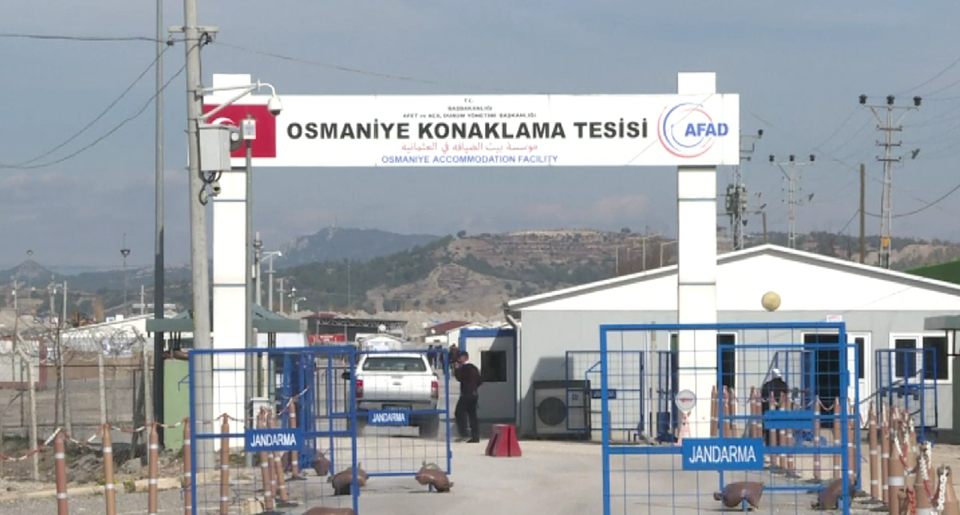
Syrian Journalists Face Deportation and Repression in Türkiye
Syrian journalists and activists are facing an increasingly dangerous situation in Türkiye. With shifting political dynamics and heightened scrutiny from Turkish authorities, Syrian reporters are subjected to threats that compromise their safety and freedom. The growing crackdown consists of many reporters being interrogated, mistreated, and threatened with deportation back to Syria, severely hindering their ability to work and live. In response, EU member states should expand existing visa pathways for journalists and activists residing in Turkish territory.
Numerous journalists have told Reporters Without Borders how the prevailing atmosphere of fear has disrupted the daily lives of Syrians. Sources shared they are “living in hiding … unable to walk down the street, and … go to work.” One source detailed how they lost their job with a Syrian media outlook because of their inability to go to work. The reporter explained, “If I go out, I risk getting… sent back to Syria. I don’t know what to do.” The fear is that any commentary critical of Turkish authorities or interests could lead to severe repercussions, including deportation to Syria.
Deportation to Syria in particular is one of the most concerning issues Syrian journalists face, as they risk being imprisoned, abducted, or even executed upon return. Alarmingly, as of 2023, Turkish authorities have intensified their efforts to deport Syrian refugees. Cases like that of Syrian journalist Khaled Obeid, who was arrested in January 2023 under the pretense of expired papers, illustrate how quickly one’s presumption of safety and security can change. Although Obeid had an appointment to regularize his residency in Türkiye just days before his arrest, Turkish authorities used the expired papers as a pretense to force Obeid to sign a “voluntary” deportation form and send him back to Syria. Actions like these create an atmosphere of fear that restricts activists’ freedom of expression and stifles their speech on significant issues affecting both Turkish citizens and Syrian refugees.
The arrest of Syrian journalist Khalid Al-Homsi further details the increasing safety risks for reporters. Al-Homsi, who was stopped at a police checkpoint while traveling in Türkiye, was detained after authorities checked his identification card. Al-Homsi detailed that he had previously passed through another checkpoint with the same papers, but this time officers tried to convince him to sign documents to “voluntarily” return to Syria to “reconcile with the Syrian regime.” When Al-Homsi refused, he was sent to a refugee camp for Syrians in Osmaniye until the issue with his papers could be resolved. There have been no recent reports on whether Al-Homsi remains in the refugee camp, but Turkish authorities were unwilling to release him from Osmaniye at the time of his detention, and, according to his lawyer, there was little hope Al-Homsi would be freed.
This fear felt among Syrian journalists is compounded by Türkiye’s broader political dynamics, both domestically and internationally. Although Turkish authorities justify the arrests of journalists like Obeid and Al-Homsi based upon their lack of updated documentation, these cases reflect Türkiye’s larger strategy to control the narrative within the country. Domestically, Türkiye has tightened restrictions on free speech through aggressive crackdowns, particularly in the media sector. Since the failed coup of 2016, Turkish authorities have used various tactics to silence critics, from shutting down media outlets to arresting journalists under vague charges such as terrorism or spreading anti-state sentiments. In this hostile environment, Syrian journalists, who are already vulnerable as refugees, find themselves caught between the threats of Turkish repression and the dangers they fled in Syria.
Internationally, Türkiye leverages its role as a host to millions of Syrian refugees to position itself as a key player in EU negotiations and refugee policy. By threatening deportation and restricting the rights of Syrian journalists, the government sends a message to both domestic and foreign audiences: dissent will not be tolerated, and Türkiye will control the narrative regarding its treatment of Syrians. This manipulation of refugee status for political advantage further marginalizes Syrian journalists, whose presence in Türkiye has significant geopolitical implications.
Türkiye’s efforts to deport Syrians raise serious concerns under international law, particularly the principle of non-refoulement outlined in the 1951 U.N Convention on the Status of Refugees ('Refugee Convention') and understood to be customary international law. This principle guarantees that 'no one should be returned to a country where they risk torture, cruel, inhuman or degrading treatment, or other irreparable harm.' While Türkiye maintains a geographical limitation to the Refugee Convention, customary international law requires that Türkiye apply the principle of non-refoulement without discrimination to all refugees, regardless of their origin. Moreover, the non-refoulement principle in the Refugee Convention is one of the few articles to which reservations cannot be made.
Recognizing the importance of freedom of expression to democratic norms and the pervasiveness of Türkiye’s mistreatment of Syrian journalists, the international community must take action. The EU and other global partners should work together to expand visa pathways and asylum programs specifically designed for reporters and activists facing threats to their livelihoods and freedom. Such pathways would allow Syrians to live in environments dedicated to promoting their welfare and respecting their freedom of expression, while also allowing Syrians to practice their profession safely and express their views without punishment. Additionally, EU member states, the U.S., and human rights organizations should exert pressure on Türkiye to cease its dangerous and unlawful deportation practices, particularly as it relates to the targeted persecution of journalists and the prohibition on non-refoulement. Countries with strong diplomatic ties to Türkiye, such as various EU states, should also condition their ongoing financial contributions and diplomatic relations with Türkiye on the protection of Syrian journalists and refugees at large.
___________________________
For more information or to provide feedback, please contact SJAC at [email protected] and follow us on Facebook and Twitter. Subscribe to SJAC’s newsletter for updates on our work